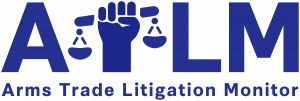Home > Case Overviews > Canadian Arms and Palestine
Canadian Arms and Palestine
Jurisdiction
Canada
Locale
Armed Conflict in Palestine
Recipient State
Israel
Status
Ongoing
Litigation in Canada, in the context of the situation in Israel and Palestine has sought to challenge the issuance of export and brokering permits for military goods and technology to Israel as authorised by the Minister of Foreign Affairs on or after 9 October 2023 through an application for a judicial review.
The application states that any export or brokering of military goods or technology to Israel that took place on or after 9 October 2023 is in breach of the Export and Import Permits Act (EIPA). The issuance of such permits is “unlawful because of the substantial risk (emphasis in application) that military goods or technology will be used to facilitate violations of international humanitarian law (IHL) or international human rights law (IHRL), and/or serious acts of violence against women and children, and/or undermine peace and security”. The application also states that Canada’s approval of these transfers to Israel violates public international law and the Canadian Charter of Rights and Freedoms.
As of April 2024, the next steps for this case remain unclear. Updates will be made available as the case proceeds.
Latest developments
Case Analysis
This is the first legal proceeding addressing the EIPA and its provision concerning the export of military goods and technology.
Themes
iCases
Case status
Application for Judicial Review against the Canadian Minister of Foreign Affairs
Explore caseThis case seeks a judicial review in respect of the issuance of export and brokering permits (export approvals) for arms, ammunition, implements or munitions of war (military goods or technology) to Israel, authorised by the Minister of Foreign Affairs on or after 9 October 2023, in the context of the situation in Palestine, particularly in Gaza. As of April 2024, the case is in its early stages and the next steps remain unclear.
Key Case Documents
View all case documentsTimeline
FILTERS
05 Mar 2024
28 Jan 2024
A coalition of individuals and civil society organisations send a letter to the Minister of Foreign Affairs urgently requesting information on Canada’s export approvals of military goods or technology to or destined for Israel and that any permits issued after 7 October 2023 be cancelled. The Minister did not respond to the letter.
Read the full letter hereContact & More Information
If you would like to know more about this case, please get in touch with our primary contact Henry Off (CLAIHR) Turp by email.
Find out more about the work of the Applicants at their websites:
Key
There has been a recent improvement in this thematic area
There has been a recent worsening of this thematic area



Analysis
02 February 2024
Nicaragua calls on UK, Germany, the Netherlands and Canada to immediately halt the supply of arms, ammunition, technology and/or components to IsraelKawsachun News
Nicaragua calls on UK, Germany, the Netherlands and Canada to immediately halt the supply of arms, ammunition, technology and/or components to Israel as they may have been used to facilitate or commit acts of genocide in Gaza.
Read more28 January 2024
Letter to the Canadian Minister of Foreign Affairs on Canadian military goods and technology transfers to Israel since 7 October 2023On January 28, a coalition of Canadians and Palestinians wrote to Minister of Foreign Affairs Mélanie Joly demanding that the federal government immediately halt all exports and transfers of Canadian military goods and technology to Israel.
Read more